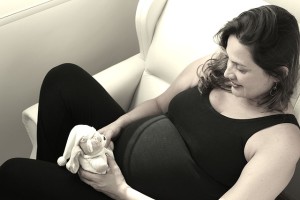- Calls to this hotline are currently being directed to Within Health, Fay or Eating Disorder Solutions
- Representatives are standing by 24/7 to help answer your questions
- All calls are confidential and HIPAA compliant
- There is no obligation or cost to call
- Eating Disorder Hope does not receive any commissions or fees dependent upon which provider you select
- Additional treatment providers are located on our directory or samhsa.gov
Eating Disorders During Pregnancy and the Postpartum Period

Contributor: Staff at Montecatini Eating Disorder Treatment Center
A woman’s body undergoes a variety of changes during pregnancy, and many of these fluctuations are difficult for women to adjust to. This is especially the case for body weight, an area that is perhaps the most affected by pregnancy.
Individuals living with an eating disorder may demonstrate a range of symptoms, including obsessive fears about gaining weight, unrealistic perception of their own body image, a fixation on exercise, and limiting food quantities. These symptoms have a large impact on the daily lives of women who are struggling with eating disorders, especially women who are pregnant or who have recently given birth.
Research in Psychological Medicine analyzed a large group of women and found that 1 in 21 women was living with an eating disorder while they were pregnant. Anorexia nervosa was present in .1% of women prior to getting pregnant, while .7% of women were experiencing bulimia nervosa before their pregnancy.
There were no notable changes in the presence of anorexia nervosa symptoms before pregnancy and during pregnancy. However, only .2% of women still exhibited symptoms of bulimia nervosa during pregnancy.
The number of women struggling with unspecified eating disorders also decreased, with .1% living with EDNOS prior to pregnancy and less than .1% suffering from unspecified eating disorders during pregnancy.
These statistics make it vital that women living with eating disorders receive an accurate diagnosis and treatment prior to, during, and after pregnancy. This will ensure that women struggling with eating disorders are connected with the appropriate services to acquire the optimal health of both mother and child. Untreated eating disorders not only have the potential to impact women negatively, but these conditions can also negatively influence the body and brain development of an unborn child.
Pregnant women suffering from eating disorders and women who recently gave birth and are struggling with eating disorders should receive treatment and additional monitoring for symptoms of an eating disorder. This will ensure that a woman’s mental health needs are not only being addressed at the most critical points during the pregnancy and postpartum period but through the entire process.
There are certain periods where symptoms of eating disorders and other mental health concerns reach a peak for women who are pregnant or in the postpartum period while living with an eating disorder. A study in the International Journal of Eating Disorders indicated that disordered eating behaviors were the highest during week 6 of pregnancy and six months postpartum.
These eating-disordered behaviors were also correlated with more significant symptoms of depression and anxiety and abnormal fetal birth weight. These results show that eating-disordered behaviors have an impact on the physical and mental health of both mother and child.
 Another subject of discussion is the idea of parenting in pregnant women who are struggling with eating disorders.
Another subject of discussion is the idea of parenting in pregnant women who are struggling with eating disorders.
Despite the eating disorder symptoms that an expecting mother may be experiencing, consideration for the health of her unborn child remains present, along with concerns such as control.
BMC Pregnancy Childbirth analyzed other common themes among pregnant and postpartum women living with eating disorders. One theme was struggling with control, which is a common concern across all types of eating disorders. Additional themes were women experiencing difficulty disclosing eating disordered behaviors to others, struggling to balance motherhood and an eating disorder, fearing passing an eating disorder to their child, and having trouble developing effective coping strategies.
A comprehensive and specialized treatment program is essential to the rehabilitation efforts of pregnant and postpartum women struggling with eating disorders. Effective treatment services and a well-rounded approach are vital to minimize the negative impact of various gestational changes that pregnant and postpartum women living with eating disorders may experience. These rehabilitation efforts will assist in promoting good health in mothers and children alike.
References:
Bulik, C.M., Von Holle, A., Hamer, R., Knoph Berg, C., Torgersen, L., & Magnus, P. (2007). Patterns of remission, continuation and incidence of broadly defined eating disorders during early pregnancy in the Norwegian Mother and Child Cohort Study (MoBa). Psychological Medicine, 37(8), 1109-18. doi:10.1017/S0033291707000724
Chan, C.Y., Lee, A.M., Koh, Y.W., Lam, S.K., Lee, C.P., Leung, K.Y., & Tang, C.S.K. (2019). Course, risk factors, and adverse outcomes of disordered eating in pregnancy. Int J Eat Disord, 52(6), 652-658. doi:10.1002/eat.23065.
Claydon, E.A., Davidov, D.M., Zullig, K.J., Lilly, C.L., Cottrell, L., & Zerwas, S.C. (2018). Waking up every day in a body that is not yours: A qualitative research inquiry into the intersection between eating disorders and pregnancy. BMC Pregnancy Childbirth, 18(1), 463. doi: 10.1186/s12884-018-2105-6
About Our Sponsor:
Montecatini provides comprehensive treatment to females aged 16 and older who are struggling with eating disorders.
The opinions and views of our guest contributors are shared to provide a broad perspective of eating disorders. These are not necessarily the views of Eating Disorder Hope but an effort to offer a discussion of various issues by different concerned individuals.
We at Eating Disorder Hope understand that eating disorders result from a combination of environmental and genetic factors. If you or a loved one are suffering from an eating disorder, please know that there is hope for you, and seek immediate professional help.
Reviewed & Approved on November 7, 2019, by Jacquelyn Ekern, MS, LPC
Published November 7, 2019, on EatingDisorderHope.com

The EatingDisorderHope.com editorial team comprises experienced writers, editors, and medical reviewers specializing in eating disorders, treatment, and mental and behavioral health.

